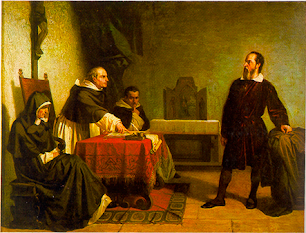Vishruth Week 11: Curiosity Is Real Power
Curiosity is our most powerful weapon. It drives society forward. And it has been for the last two thousand years.
384 BCE: Aristotle proposed the geocentric model. Although Nicolaus Copernicus would prove him false eighteen hundred years later, Aristotle ultimately influenced a new understanding of the human being and its role in the context of the universe. He inspired a religious resurgence that’s rippling effects can still be felt today. If it were not for the undying curiosity of this one man, we would be nowhere near where we are today.
Curiosity overpowered religion in the 16th century. When Copernicus embarked on a journey to satisfy his doubts about the universe, he ended up creating a permanent rift between religion and science. Copernicus was deemed a “fool” and “hectic” by some of the highest-ranking religious officials—who, at the time, held authority nearly mirroring royalty. Nevertheless, he chose to defend his heliocentric model and influenced the next several generations to let curiosity rather than religion control their lives.
Fast forwarding to the twenty-first century, we wouldn’t have Meta and social media if it weren’t for Mark Zuckerberg’s inventive thinking. Ah, how nice a world without Instagram would be, but anyway… he wrote the code and hacked into Harvard servers while being drunk. Again, we see that the unconscious human mind wants to explore. Just think about the power that Zuckerberg has right now. He controls the private data of 5 billion users worldwide. While this may seem intangible, the whole economic and social infrastructure could fall right apart if this data falls into the wrong hands.
Some people believe that more tangible things like guns or bombs represent power. But really, that’s only temporary. As Aristotle, Copernicus, and Zuckerberg demonstrate, curiosity is the real power. Not only does it quench our thirst for knowledge, but it also enables us to influence those around us and those who come after us. That’s what real power is.
384 BCE: Aristotle proposed the geocentric model. Although Nicolaus Copernicus would prove him false eighteen hundred years later, Aristotle ultimately influenced a new understanding of the human being and its role in the context of the universe. He inspired a religious resurgence that’s rippling effects can still be felt today. If it were not for the undying curiosity of this one man, we would be nowhere near where we are today.
Curiosity overpowered religion in the 16th century. When Copernicus embarked on a journey to satisfy his doubts about the universe, he ended up creating a permanent rift between religion and science. Copernicus was deemed a “fool” and “hectic” by some of the highest-ranking religious officials—who, at the time, held authority nearly mirroring royalty. Nevertheless, he chose to defend his heliocentric model and influenced the next several generations to let curiosity rather than religion control their lives.
Fast forwarding to the twenty-first century, we wouldn’t have Meta and social media if it weren’t for Mark Zuckerberg’s inventive thinking. Ah, how nice a world without Instagram would be, but anyway… he wrote the code and hacked into Harvard servers while being drunk. Again, we see that the unconscious human mind wants to explore. Just think about the power that Zuckerberg has right now. He controls the private data of 5 billion users worldwide. While this may seem intangible, the whole economic and social infrastructure could fall right apart if this data falls into the wrong hands.
Some people believe that more tangible things like guns or bombs represent power. But really, that’s only temporary. As Aristotle, Copernicus, and Zuckerberg demonstrate, curiosity is the real power. Not only does it quench our thirst for knowledge, but it also enables us to influence those around us and those who come after us. That’s what real power is.



Hi Vishruth,
ReplyDeleteDue to the fact that curiosity is such an overlooked term with much simplicity, I loved how you were able to define and describe its true and immense power on society. I felt your description was remarkable as you described it to be something that "drives society forward" and the way this has been long standing. I think you were able to display through examples like "Mark Zuckerberg's inventive thinking," Copernicus, and Aristotle, to demonstrate how "curiosity is the real power." admirable. You also delved into its impacts and how curiosity was ultimately what "overpowered religion in the 16th century." In analyzing your examples in order to promote your opinion I think your blog this week was immensely strong and captivating. Because you were able to provide such sufficient and authentic evidence, you were really able to allow readers, like myself, to fully comprehend the way you perceive curiosity and the role it plays when it comes to power. Overall, I admire your capability to culminate a post in which you smoothly embedded the right amount of evidence in order to flawlessly elaborate upon the power that curiosity holds. Thank you for sharing!
Hi Vishruth! Your blog provides a compelling exploration of the theme of curiosity and its profound impact on society throughout history. The phrase "curiosity kills the cat" is subtly addressed within the context of your blog, as you highlight instances where curiosity has challenged established beliefs and systems, sometimes at personal risk. This phrase traditionally conveys a warning against excessive curiosity, suggesting that it can lead to trouble or harm. However, you prove this ideal wrong by proving how curiosity has driven progress and innovation, despite facing opposition and criticism. Your blog made me reflect on the importance of nurturing curiosity in society and how it can lead to groundbreaking discoveries and advancements. It also made me consider how being curious is sometimes looked down upon or discouraged, particularly when it challenges authority or the status quo. One aspect you could consider improving is providing more nuanced analysis of the potential drawbacks or ethical considerations associated with unchecked curiosity, especially in the age of data privacy concerns highlighted by the example of Mark Zuckerberg. Additionally, exploring counterarguments or alternative perspectives could enrich the discussion and provide a more well-rounded view of the topic. Overall, I enjoyed reading your blog as you effectively convey the power of curiosity to drive progress and change, while also prompting readers to consider the complexities and implications of this fundamental human trait.
ReplyDeleteThis comment has been removed by the author.
ReplyDeleteCuriosity is often overlooked as a motivating force, so your assertion that curiosity is not just a weapon, but "our most powerful" weapon is unexpected and yet thought-provoking. Given the somewhat bold nature of the claim, you do a good job justifying it with examples of the results of creativity that forever changed the course of history.
ReplyDeletePersonally, I think one of the most incredible aspects of curiosity is that it can make such a huge difference even when only a single person has it. Copernicus was just one man, and yet his curiosity-fueled work helped lay the foundation for the dismantling of the previously almighty institution of the church. Similarly, the drunken curiosity of Mark Zuckerberg alone is what initially sparked the creation of what would eventually make him one of the most rich and powerful people in the world.
Beyond these most extreme examples, however, we can also see how curiosity can be a powerful force in the average person's day-to-day life. Oftentimes, curiosity can come at one's detriment, leading a child to press their hand to a hot stove, or people to seek out what should remain hidden.
While I don't agree that curiosity is the most powerful motivating force, you have successfully convinced me that it is at least one of the most.
Hi Vishruth! I found your article interesting, dare I say it piqued my curiosity, and I enjoyed how you denoted the history of curious minds which began 384 BCE. I find it interesting how Copernicus, one of the most respected scientific minds within the academic community, was called a fool and faced derision from society. There seems to be an uncanny connection between revolutionary individuals within human history and how they were always initially doubted and criticized whether it be modern thinkers such as Elon Musk or Galeleo from the Enlightenment. I wonder what tactics these people used to face this criticism and continue to pursue his scientific studies. Connection to the second half of your blog, I also wonder what other startup founders, who will become the leaders of the AI revolution, are facing the same type or similar derision and laughter as Copernicus did. Building off of your blog, I agree with your assessment on the importance of curiosity but just as equally the emotional intelligence to be able to value your own beliefs and not let them be undermined by the opinions of others. Thank you for sharing your experiences!
ReplyDelete